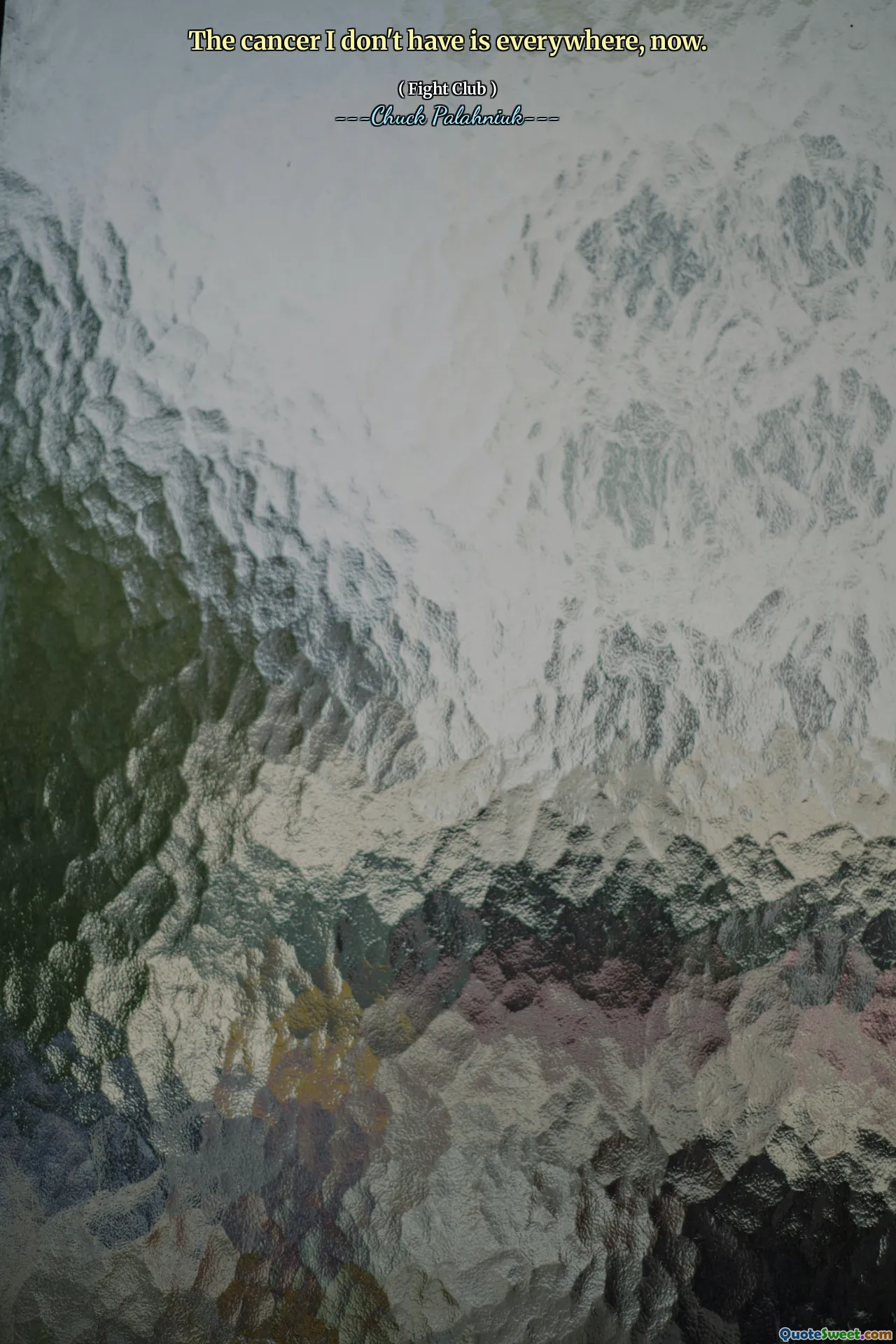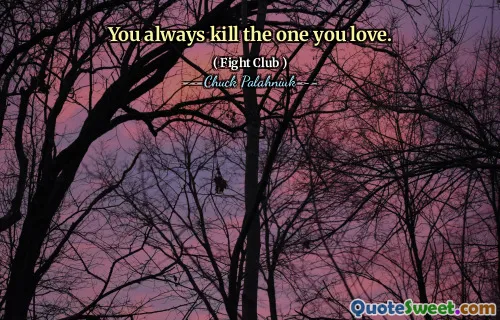
The cancer I don't have is everywhere, now.
This quote evokes a vivid image of pervasive anxiety or dread that feels unavoidable and all-consuming. It suggests a sense that a destructive or harmful force, symbolized by cancer, is profoundly present not just physically but emotionally or psychologically. When thinking about the metaphor, one might interpret the 'cancer' as representing fear, guilt, regret, or negative thought patterns that seem to infiltrate every aspect of life. The declaration of 'I don't have' implies a conscious denial or wishful thinking—perhaps the speaker fears that these overwhelming feelings or circumstances are unavoidable, spreading relentlessly across their mental or emotional landscape. Such a perspective can be illuminating in understanding the human condition: our tendency to catastrophize, to feel as though negativity is contagious, and to grapple with the idea that certain destructive forces might be unavoidable, regardless of our will. It also underscores the importance of resilience and hope in navigating life's hardships; where the feeling of pervasive negativity might seem omnipresent, finding moments of peace or strength becomes a vital act of resistance. The phrase resonates with the experience of mental health struggles, such as anxiety or depression, where negative thoughts can feel as invasive as a disease, infiltrating every corner of one's mind. Overall, the quote challenges us to consider the extent to which external threats or internal fears can dominate our perception, and whether we can find ways to compartmentalize or confront those fears despite their perceived omnipresence.











